Dark conspiracy theories coming true as archaic law grants Donald Trump unprecedented power
The worst fears of many Americans are now coming true under Donald Trump, with the President set to seize unprecedented power.
World
Don't miss out on the headlines from World. Followed categories will be added to My News.
Black helicopters swooping down at night.
Federal agents busting down doors without warrants.
Military detention centres in carparks.
Decades of dark US conspiracy theories are coming true.
QAnon’s prophets and deep throats may have fallen silent. But federal law enforcement agents will soon be allowed to force entry into private homes without a warrant.
According to White House lawyers, the wording of an obscure, 230-year-old wartime emergency powers law allows constitution-busting raids to be conducted at the “warrant of a president”.
That’s being argued as giving President Donald Trump the power to order mass deportation raids on his own authority without the involvement of the nation’s courts.
But the push for powers to act arbitrarily doesn’t end there.
The White House is doubling down on a reinterpretation of the US Constitution’s definition of the separation of powers.

“I have an Article II, where I have the right to do whatever I want as President. But I don’t even talk about that,” Mr Trump said during his first term in office.
Two months into his second term, Capitol Hill is talking a lot about Article II.
“(Trump) has asserted that he has the authority to violate statutes passed by Congress and orders and precedents of the courts,” argued University of Minnesota Law School associate professor Nicholas Bednar.
“He has asserted that Article II contains implied powers to remove all subordinates within the executive branch, control spending, punish national security threats, deport immigrants without due process, and ignore judicial orders related to foreign affairs.
“Many of these actions conflict directly with the express or implied will of Congress and the Supreme Court.”
But it’s a reinterpretation of centuries of precedent that’s already being put into effect.
Constitutional showdown
A federal judge has issued a temporary restraining order against the White House for detaining foreign student Yunseo Chung for participating in a pro-Palestinian demonstration.
Similarly, student activist Mahmoud Khalil is still in jail – despite not being charged with any crime.

But all eyes are on the showdown between federal judge James Boasberg and President Trump, after he ordered the White House to turn around planes carrying deported Venezuelan immigrants.
The White House says the order was issued “too late” to do so.
“The ramifications of these expulsions are still unwinding,” argued an assessment by the International Crisis Group.
“The Trump administration has provided no evidence that any of them has committed a crime or belonged to (Venezuelan criminal organisation) Tren de Aragua. A sworn statement by US Immigration and Customs Enforcement acknowledged that ‘many’ were not accused of crimes in the US but claimed they had been ‘vetted’ and found to be members of the criminal organisation.”
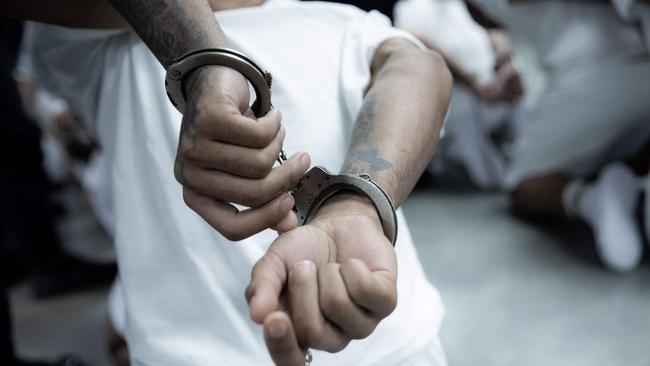
The White House admits 101 of the 238 deportees belong to this category.
“The Department of Justice acknowledges that it has little information regarding some of those deported and that several have committed no crime,” the Crisis Group added.
But the White House argues that Article II of the Constitution and an arcane wartime law gives the President unfettered powers to act “in the interests of the United States”.
They insist that attempts to enforce legal due process and congressional legislation unlawfully constrain Mr Trump’s powers.
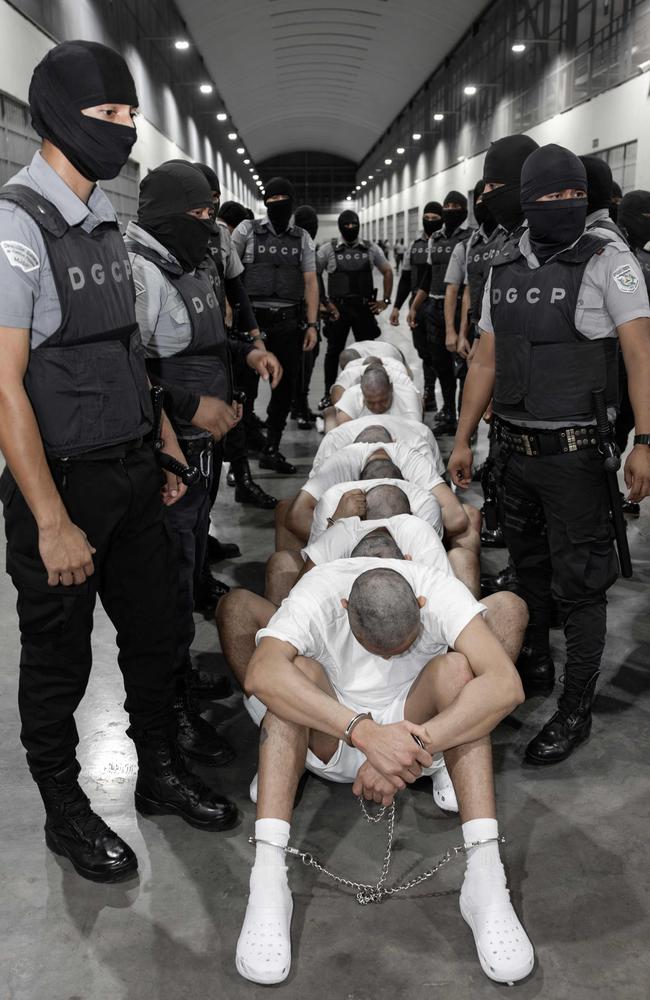
It’s setting the stage for a constitutional crisis.
“This vision of Article II does not just conflict with legislation; it also conflicts with the plain meaning of other provisions of the Constitution,” argued Bednar.
“Trump’s Article II represents an unconstrained version of executive power.”
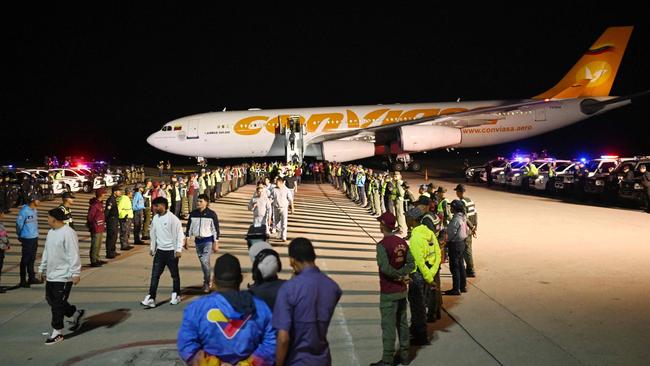
Of alien enemies
The Alien Enemies Act of 1798 has been used only three times in its long history. The most recent was to create internment camps to hold US citizens and residents of Japanese descent during World War II.
The US is currently not at war.
But that’s not stopping the White House from embracing its emergency powers.
Specifically, it’s being used to justify moves to supersede the Fourth Amendment.
This constitutional stricture requires federal agents to obtain a court order before searching private property. The Trump administration hopes to avoid such paperwork by unilaterally designating someone an “alien enemy”.
“It remains unclear whether the administration will apply the law in this way, but experts say such an interpretation would infringe on basic civil liberties and raise the potential for misuse,” the New York Times reports.
“Warrantless entries have some precedent in America’s wartime history, but invoking the law in peacetime to pursue undocumented immigrants in such a way would be an entirely new application.”
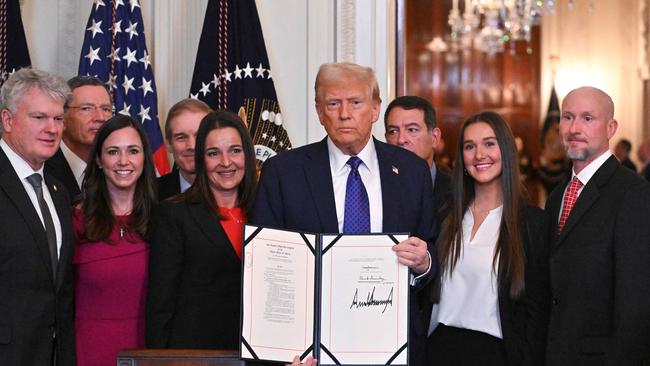
Everything rests on the archaic wording of the Act itself.
It states the powers can be used at the “warrant of a president”.
That’s being interpreted as meaning a President can summarily issue a warrant without following legal due process.
“Ripping that right away from Americans would be an abuse of power that destroys our privacy, making Americans feel unsafe and vulnerable in the places where our children play and our loved ones sleep,” President of the National Association of Criminal Defense Lawyers Christopher Wellborn told the New York Times.
But the White House is keen to cement the presidential power.
All it took for Mr Trump to deport the Venezuelan immigrants was to accuse them of belonging to the Tren de Aragua organised crime gang, and redesignate it as a terrorist organisation.
Mr Trump insists Tren de Aragua is “perpetrating an invasion” of the US, and that the gang was “closely aligned with, and indeed has infiltrated, the (Venezuelan) Maduro regime”.
And the White House is attempting to validate this move by reinterpreting Article II of the US Constitution.

Mar-a-Lago tea party?
Article II invests “executive power” in the role of the President.
But what is “executive power”?
The predominant understanding has been that it gives a President the power to execute the laws created by the people’s representatives on Capitol Hill (the Senate and Congress).
The Trump administration and its backers in the Heritage Foundation think-tank advocate a much narrower interpretation.
“Article II gives ‘executive power’ to the President, who is also commander in chief of the military,” legal analyst Victor Joecks argued.
“Yet, according to some federal judges, the judiciary is in charge of the executive branch’s military policy, hiring, spending decisions, and deportation flights. The Trump administration can’t even take down a website.”
But this interpretation has serious implications.
“(This position) argues that the ‘executive power’ contains a residuum of powers once possessed by the British Crown, which were transferred to the President during the founding,” argued Mr Bednar.
“Whereas (the Supreme Court) found that Congress’s authority would limit the powers of the President, Trump argues that the acts of Congress must succumb to exercises of presidential authority.
“Legislative supremacy succumbs to presidential supremacy.”
In essence, a US President is king in all but name.
And that’s putting him in conflict with the judicial and legislative branches of government.
A constitutional crisis will result if the President refuses to accept a judicial or congressional ruling.
“If Trump tells the court to enforce its own rulings, the court can’t,” warned Mr Joecks.
“It can only hope there would be a political price to pay for openly defying a court order.
“Supreme Court Chief Justice John Roberts needs to stop rogue district court judges from violating the Constitution – and quickly. If he doesn’t, support from the right could evaporate quickly.”
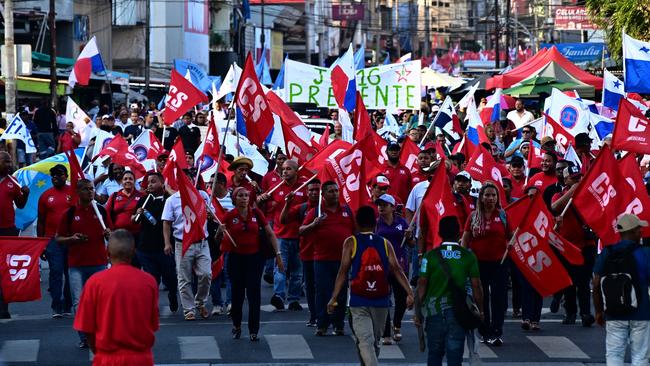
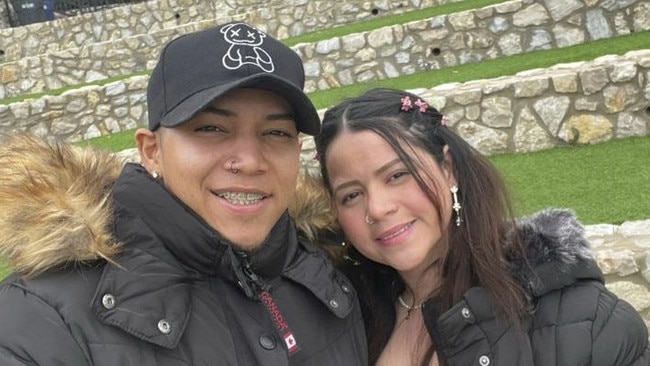
Authorising deadly force
The White House says it is using AI-controlled sifting tools to scrape social media posts to find sympathisers “who appear to support Hamas or other designated terror groups”.
This has particular implications for tourists, business travellers and permanent US residents.
Any criticism of Israel’s intensive bombing campaigns in Gaza, Lebanon and Syria could get you deported.
Any criticism of President Trump and Special Government Employee Elon Musk slashing US federal services could see you turned back at an airport.
It all comes under the reinterpretation of Article II’s provisions enabling the President to protect the United States.
“The president of the United States is authorised under the Constitution to find that there are certain individuals or certain companies that are not trustworthy with the nation’s secrets,” the administration told a recent judicial hearing.
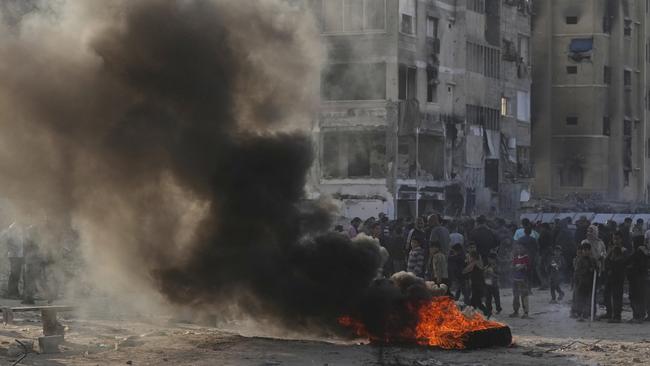
When asked if that included targeting lawyers presenting an opponent’s case, the White House stated the President could punish anything deemed “inconsistent with the interest of the United States”.
This puts extraordinary power in the hands of President Trump.
“The government has … asserted that the president’s determination of what constitutes a national security threat is nonjusticiable (not a matter for courts to decide),” Mr Bednar explained.
“By extension, it would presumably argue that once the president has labelled a person or business a threat, the power to punish would seem to permit the president to revoke any government benefits they enjoyed, restrict their movement, and prevent them from interacting with government officials.”
That may be why Mr Trump’s Attorney-General and FBI Director are accusing Tesla Takedown – a protest group targeting Elon Musk’s DOGE budget-cutting task force – of being a “terrorist organisation” wielding “weapons of mass destruction”.
That means they’re eligible for drone strikes https://t.co/aWxKkeAinG
— Elon Musk (@elonmusk) February 19, 2025
President Trump has yet to issue an arbitrary executive order putting this into effect.
But members of his administration are arguing the White House can authorise the use of military force against any terrorist group.
Tesla CEO and Presidential Special Government Employee Elon Musk has posted to his personal social media service X that this includes drone strikes.
Jamie Seidel is a freelance writer | @jamieseidel.bsky.social
Originally published as Dark conspiracy theories coming true as archaic law grants Donald Trump unprecedented power





